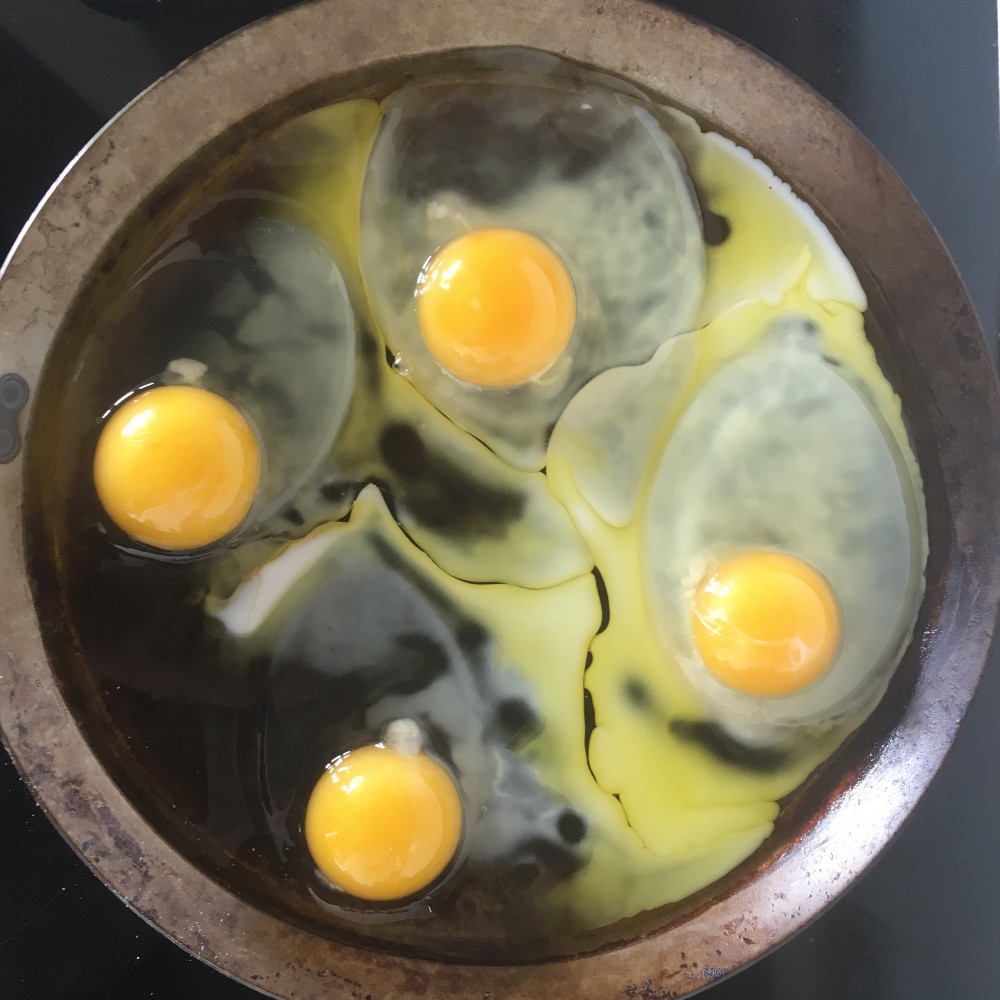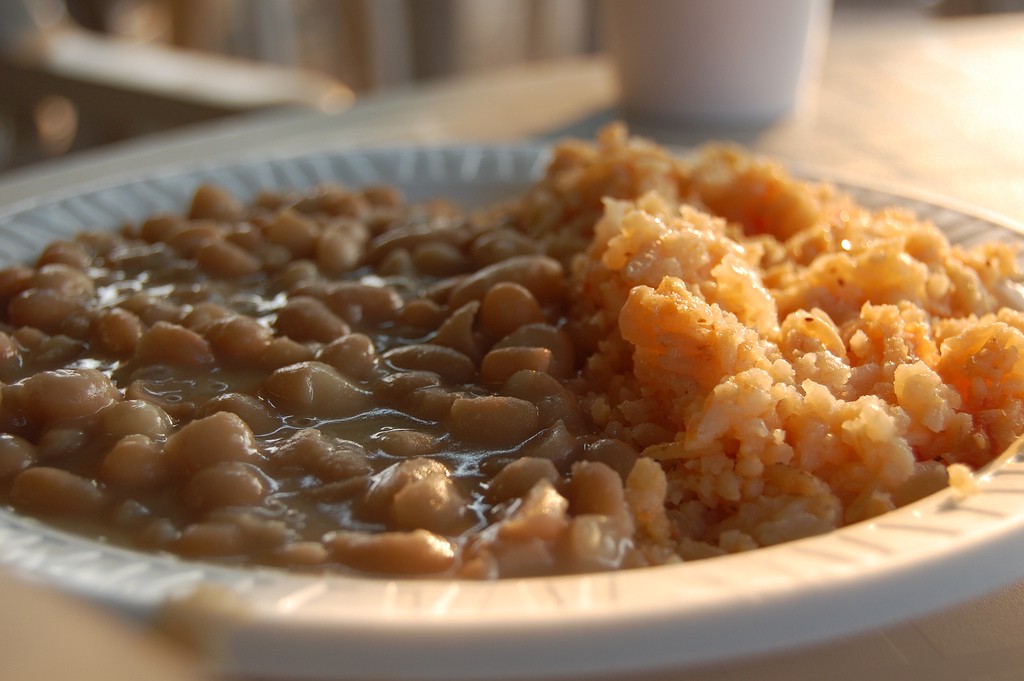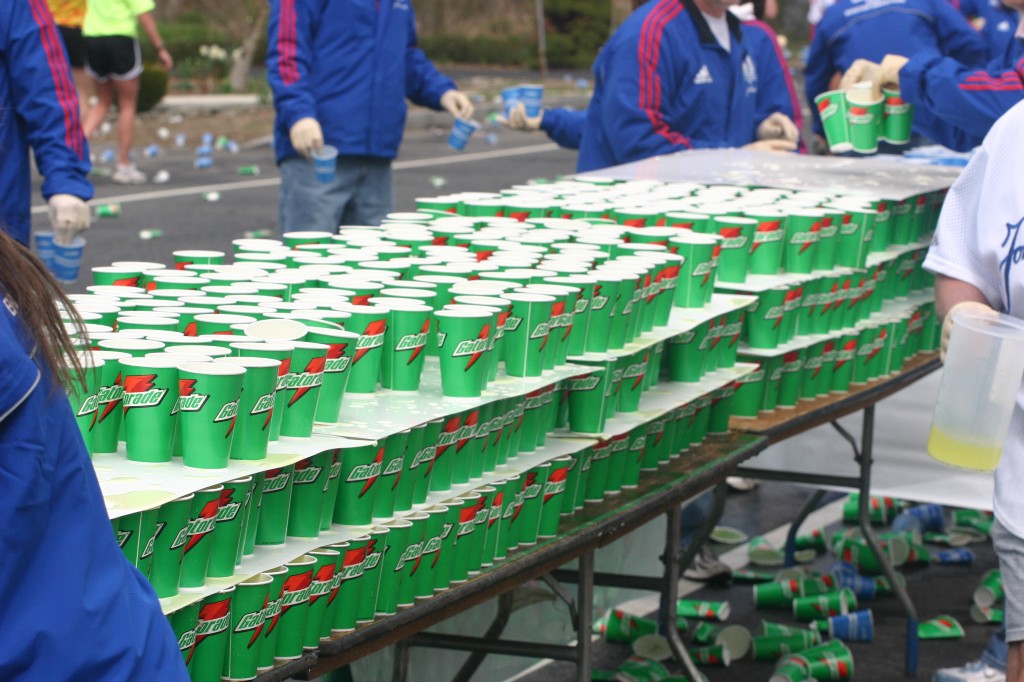Eat the Carb

Hello! We’re back after a weekend of giving the new Wonder Woman trailer a Zapruder-style analysis to examine and admire Gal Gadot’s muscles. Maybe “mom” is too far but she is firmly in the realm of “cool and fun cousin.”

What are some sources of vegetarian protein, other than nuts? I would like to be hitting the 1 gram per pound of bodyweight amount for maximum gains but since I can’t eat meat, I am struggling. — K.
First, to explain the stat above: if you want to get stronger with strength building exercises, eating 1 gram per pound of bodyweight is a kind of sweet spot for feeding your muscles (hitting a range of 0.8–1.2g per pound of bodyweight will generally do it). If you weigh 120 pounds, eat 120g protein per day.

I’m going to assume fish is out of the question here. Even if you are a vegetarian, consuming (non-meat) animal protein is generally a good idea, and you don’t have to worry about eating complementary foods, like with most plants and legumes (more on that in a minute). A lot of the following will hit people’s picky-eating spots but they are great non-meat protein sources: eggs, cartons of egg whites, cottage cheese, Greek yogurt, cheese. Eat the whole egg! It will not kill you, is good for you, and the yolk has half the protein. Low-fat mozzarella sticks, i.e., the string cheeses of your youth, have a lot of protein for the calories they contain. If you don’t like any of these things plain, try incorporating it into recipes. I will put cottage cheese in scrambled eggs (very unnoticeable), or turn it into protein pancakes or ranch dip. You can sub in Greek yogurt for mayo in a lot of instances, e.g., on sandwiches or in dips.
You can get all your protein from plants — there are vegan bodybuilders and powerlifters. But the tricky thing about plant proteins is they are not complete proteins. Protein is made of amino acids, and a “complete” protein has all nine amino acids that humans need. Plants may have protein but very few have all nine, so you need to eat a variety of things in order to get them all and absorb everything properly.

A can of black beans may tell you on its nutrition label that you’re getting, say, 50g of protein, but your body will absorb far less than that unless you eat them with a complementary food like oats, rice, or corn, which are low in protein but have their own amino acids to round out beans. Follow cultural cuisines; there is a reason rice and beans are served together! Ditto curries and rice, corn chips and salsa, chili and cornbread, vegetables and hummus, pesto and pasta, etc. Springing for fake veg-meats can also work: sausages, chik’n strips, etc. Check the ingredients to make sure you get a complete amino acid profile: there should be a variety of ingredients and not just, for instance, beans. Note that you don’t have to eat complementary foods at the same meal; within the same one-day period is fine.
There are some exceptions to the incomplete plant-protein rule: quinoa is complete; soy is complete, so are tofu and tempeh (or things made from them) are great. I have a giant bag of dried edamame (soy), which are good as a sub for nuts on a salad, or coated with stuff to make them spicy and salty. Seitan, made of wheat gluten, is another popular veggie protein source, but it needs to be complemented with something like beans.
You may have noticed that eating complete vegetable proteins involves eating some carb-y stuff. Embrace carbs! They are good for you, and you need them, in the right amounts — particularly if you are avoiding animal protein sources. You’d have an extremely tough time trying to get all your protein without them.
Lastly, there is protein powder. Whey protein fits vegetarian rules. I drink a scoop of whey protein most days. I have Optimum Gold Standard around always, and that’s a popular one. I also like the fruit flavors of Isopure, which is carb-free, but I mix it with orange juice. There are also vegan protein powder options, and again you want to pay attention to the ingredients, as they should have complementary proteins; pea and rice are a common combo. Vega seems to come tops in many things I’ve read, though I’ve never tried it.
Optimum Nutrition 100% Whey Gold Standard, Double Rich Chocolate, 5 Pound, 80 Ounce
A tub of protein seems expensive, but gram for gram, protein powder is generally the cheapest form of protein there is, aside from eggs (depending on the market and how depraved you like your egg farmers). Be somewhat careful about buying just any protein powder; sometimes they have heavy metals in them from the manufacturing process. LabDoor has good rankings of different powders.


Something that I’ve always been confused about when it comes to lifting, which is, what do you eat? Do you eat before a workout or after? What do you eat to fuel you and to make sure the work doesn’t deplete your body? — Catie
When do you eat which foods before and after a workout? I feel like i’ve heard do protein RIGHT AFTER. “Is there a window” or does it matter? Also some people drink protein like WHILE they work out, wtf. — S.
There is a lot of broscience that attends to eating as it relates to working out, and as it relates to lifting in particular. I gave you the protein ratio (1:1) you should hit above; from there, you want to eat another 20–35 percent of your calories from fat, and fill in the rest with carbs. These are your macronutrients, or “macros”. What matters most is that you’re eating enough of everything for the amount of activity you’re doing, and eating it consistently throughout the day, if only because trying to cram in huge meals many hours apart is… uncomfortable. Eating “enough” according to strength training standards takes some attention and possibly a lot of undoing of food hang-ups (e.g., you habitually avoid carbs all day and then discover at the end you have to eat two cups of plain rice, because macros. You should have just had that sandwich for lunch instead of, or in addition to, that salad).
This calculator will tell you how much you should be eating, overall. But in terms of your macro split (protein/carbs/fat), find what works for you and what you enjoy eating, within reason. MyFitnessPal and LoseIt are popular apps for tracking macros (don’t use their “weight loss” recommendations, just input your calorie/macro goals and tell them you want to maintain weight and they’ll leave you alone). And we’ll get to this more in a minute, but eat some carbs, for God’s sake.
Before a workout, it’s fine to eat, as long as you won’t get sick or slow yourself down. Many people eat something like a banana with peanut butter or a granola bar. Don’t work out starving, probably, but also don’t be starving in general. There’s nothing in particular you need to eat.
In terms of eating after or during a workout — from a practical standpoint, I don’t usually eat for a couple hours before I go to the gym because I don’t like the feeling of working out full (sometimes I have a small 200ish-calorie snack in there). Between that and the time I spend working out and getting home, I’d be going four hours without eating, which is kind of a long time! That may be part of the reason you see people drinking protein in the gym; protein shakes are also easier to stomach when drunk slowly, for some people, so rather than trying to pound it after; they’re spreading it out a bit.

Some studies suggest there is a “recovery window” of 30 minutes to an hour following a workout where it helps to consume some protein (around 20 grams), but the link is not overwhelmingly strong. But let’s also not put all the attention on protein — the American College of Sports Medicine also suggests it’s optimal to eat carbs in the hours following a hard workout, too. This may also be why you see people drinking beverages during working out; it’s not just for hydration or protein. A Gatorade during your hour-long workout won’t be absorbed straight away, and it goes toward your carb count. Time in the gym can just be a good opportunity to multi-task.
On a personal note, in the very short term after a workout, I get hit by a tsunami of exhaustion if I don’t have a couple servings of carbs within a couple of hours of a workout (I’ve started to do more workout beverages, too, which has helped a bit). Likewise, if my eating is out of whack and I don’t eat enough on workout days, I will be much more sore, stiff, and tired the next day. Therefore my anecdotal research shows contributes not just to making you not hungry, but your overall well-being and happiness. Who knew!!
More recent research suggests it doesn’t suuuper-matter when you eat what, as long as everything on balance and you’re eating enough within a 24-hour period. This video has a lot more info and details on the current state of research around this topic:
Generally speaking: eat a good meal after your workout, if at all possible; you probably need it.
Got a question for A Swole Woman? Email [email protected]